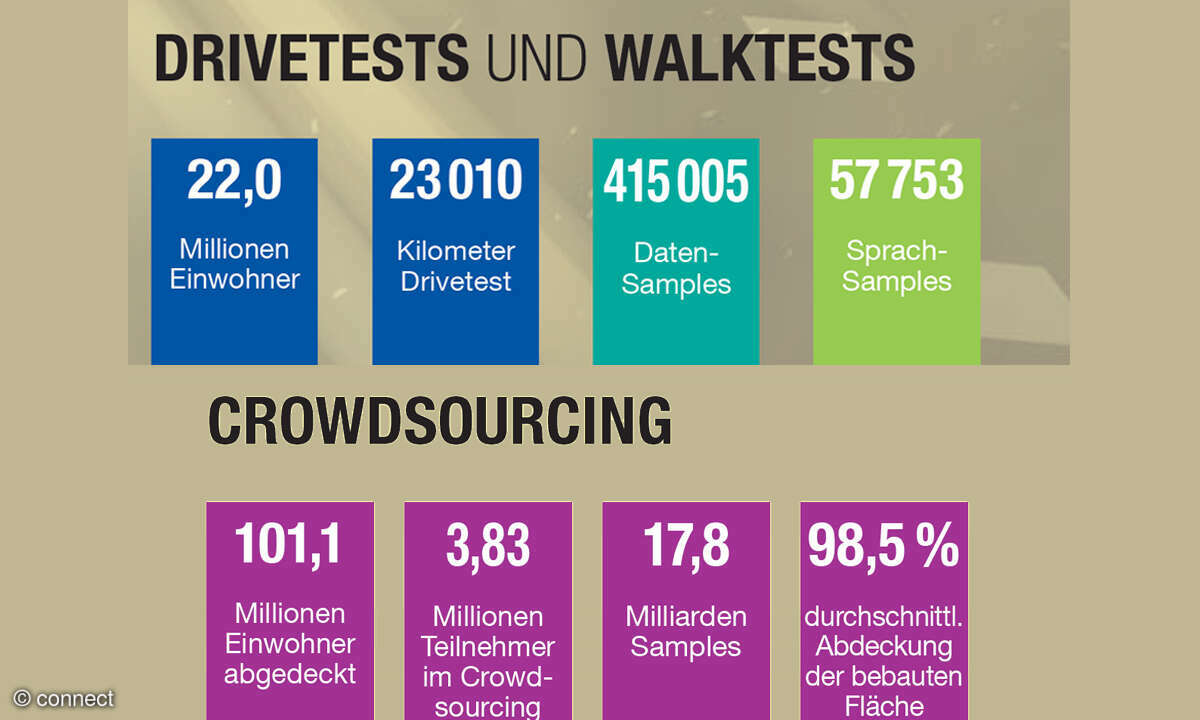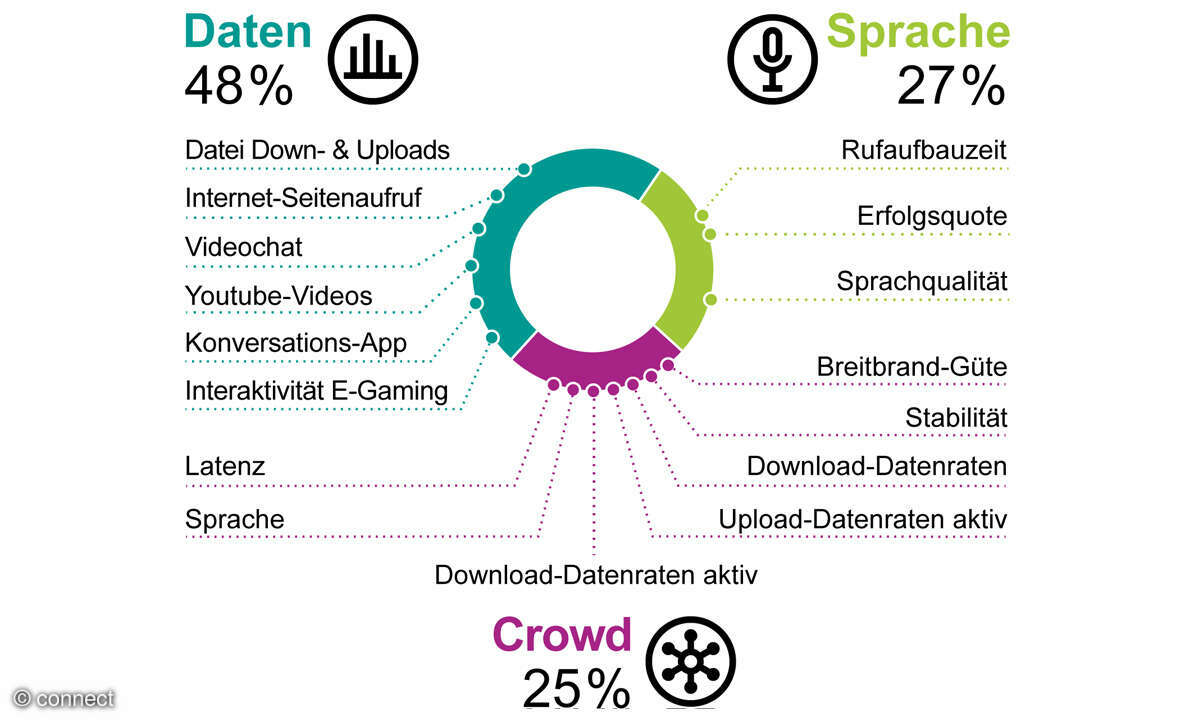Our Mobile network test celebrated last year 30th anniversary. If there has been one constant since its beginnings in 1993, it is this: the scope of consideration and the measurement methodology have continuously developed.
This has been even more true since 2004: Since that year, connect has been working with the Aachen-based benchmarking specialist, which was then still called “P3” and has been using the name since 2019 umlaut carries. Together we have repeatedly expanded the number of countries examined. Switzerland was added to the home country of Germany in 2011, Austria in 2012 and the United Kingdom in 2014. The Netherlands and Spain followed in 2015, and other countries have followed suit since then.
Leading in the industry
Although imitators have been added since then, the connect mobile network test has been considered the most important and most recognized benchmark in the industry for many years. CTOs base their planning on its results, and many customers make their decision for a provider based on our test results.

In order to maintain this quality lead, umlaut and connect regularly work to adapt the test criteria to current developments in mobile networks. For example, the increasingly important video chats have been part of our test program since this year, and we have also adapted some additional threshold values and weightings to current requirements. You can read all the innovations in the detailed methodology description.
Measure energy efficiency
In addition to performance and quality aspects, the mobile communications industry is also concerned with another important issue: the Energy efficiency of the networks. How can high availability and performance be combined with the lowest possible energy consumption? However, this aspect is not part of our evaluation. Nevertheless, it can be quantified within the framework of the existing measurement methodology. A first look at this question can be found here. And as already announced in previous editions, we will continue to keep an eye on them in the future.
In the current test, the goal remains to explore the maximum performance of the networks, but also to keep an eye on everyday performance. Read here how the providers in Germany, Austria and Switzerland perform in our demanding comparison test.
So let’s take a closer look at what results the test determined this time:
As in the previous year, in addition to the nationwide test, this time we evaluated the five largest metropolitan areas in Germany separately in order to be able to show their residents which provider performed best for them.
Practical evaluation
The most important smartphone applications today are text, voice and video messaging, app usage and mobile web applications. They are all based on data connections, which for this reason are included in our overall rating at 48%. But voice telephony is still important and should work well when you need it. It therefore accounts for 27% of the total result. Crowdsourcing contributes 25%. These tests supplement the performance-oriented measurements with analyzes of the “user experience” perceived by a large number of network users.

Interview – Hakan Ekmen, Global Networks Lead, Comms Industry and also CEO umlaut

Network operators are increasingly shifting their focus from “faster, higher, further” to greater efficiency. What does this mean for benchmarks like the connect mobile network test?
Hakan Ekmen: This development is also very relevant for us, and KPIs such as reliability or crowdsourced user experience have been taking this development into account for a long time.
Are the providers’ efficiency efforts also reflected in this year’s test results?
Hakan Ekmen: Network operators are already using many measures to improve their efficiency. The increases in our scores compared to the previous year prove that they are doing it the right way.
Does this mean that future networks will prioritize efficiency over performance?
Hakan Ekmen: We see that many providers manage to meet both dimensions. This will be an important success factor in the future.
Conclusion – Hannes Rügheimer, connect author
First of all, our congratulations to all of the network operators tested – because every one of them has either improved or at least essentially maintained their previous year’s results. Given growing data traffic and rising energy costs, this is by no means a given.
In Deutschland Telekom defends its test victory for the 14th time in a row, once again receives the grade “outstanding” and increases by three points compared to the previous year. Vodafone essentially maintained its previous year’s results. However, the increase is particularly noticeable at Telefónica/O2, which improved by a whopping 14 points and thus further narrowed the gap to Vodafone. Both providers received a rating of “very good”. In Deutsche Bahn, Vodafone and Telefónica/O2 in particular still show potential for improvement, but the test results show an initial silver lining on the horizon.
Also in Austria Magenta, which is part of the Telekom Group, is at the top – in the Alpine republic for the seventh time in a row – here too with the grade “outstanding” and a three-point improvement compared to the previous year’s result. A1 maintains its high level of performance compared to last year’s test and thus also achieved the grade “outstanding”. And it is also the smallest provider in the Alpine republic that has achieved the most significant increase: Compared to the previous year, Drei has gained a whopping 24 points – its strategy of quickly relying on modern “5G standalone” technology could pay off here.
In what is traditionally contested at the highest level Switzerland All three providers now achieve the top grade of “outstanding”. Swisscom can claim test victory for the seventh time in a row – even if the provider loses four points compared to the previous year. Sunrise, on the other hand, has increased by five points and would only have to increase its 5G distribution outside the centers. Salt remains in third place in Switzerland and has gained two points compared to last year.
More on the topic: o2 Deutsche Telekom Vodafone Sunrise Swisscom
Source: www.connect.de




